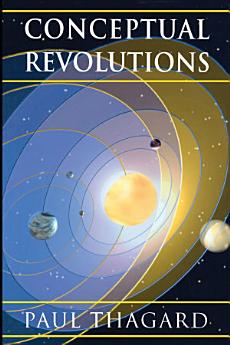Conceptual Revolutions
xuño de 2018 · Princeton University Press
Libro electrónico
310
Páxinas
family_home
Apto
info
reportAs valoracións e as recensións non están verificadas Máis información
Acerca deste libro electrónico
In this path-breaking work, Paul Thagard draws on the history and philosophy of science, cognitive psychology, and the field of artificial intelligence to develop a theory of conceptual change capable of accounting for all major scientific revolutions. The history of science contains dramatic episodes of revolutionary change in which whole systems of concepts have been replaced by new systems. Thagard provides a new and comprehensive perspective on the transformation of scientific conceptual systems.
Thagard examines the Copernican and the Darwinian revolutions and the emergence of Newton's mechanics, Lavoisier's oxygen theory, Einstein's theory of relativity, quantum theory, and the geological theory of plate tectonics. He discusses the psychological mechanisms by which new concepts and links between them are formed, and advances a computational theory of explanatory coherence to show how new theories can be judged to be superior to previous ones.
Thagard examines the Copernican and the Darwinian revolutions and the emergence of Newton's mechanics, Lavoisier's oxygen theory, Einstein's theory of relativity, quantum theory, and the geological theory of plate tectonics. He discusses the psychological mechanisms by which new concepts and links between them are formed, and advances a computational theory of explanatory coherence to show how new theories can be judged to be superior to previous ones.
Acerca do autor
Paul Thagard is Professor of Philosophy and Adjunct Professor of Psychology and Computer Science at the University of Waterloo in Ontario, Canada.
Valora este libro electrónico
Dános a túa opinión.
Información de lectura
Smartphones e tabletas
Instala a aplicación Google Play Libros para Android e iPad/iPhone. Sincronízase automaticamente coa túa conta e permíteche ler contido en liña ou sen conexión desde calquera lugar.
Portátiles e ordenadores de escritorio
Podes escoitar os audiolibros comprados en Google Play a través do navegador web do ordenador.
Lectores de libros electrónicos e outros dispositivos
Para ler contido en dispositivos de tinta electrónica, como os lectores de libros electrónicos Kobo, é necesario descargar un ficheiro e transferilo ao dispositivo. Sigue as instrucións detalladas do Centro de Axuda para transferir ficheiros a lectores electrónicos admitidos.







